
The Business of Fashion
Agenda-setting intelligence, analysis and advice for the global fashion community.

Agenda-setting intelligence, analysis and advice for the global fashion community.
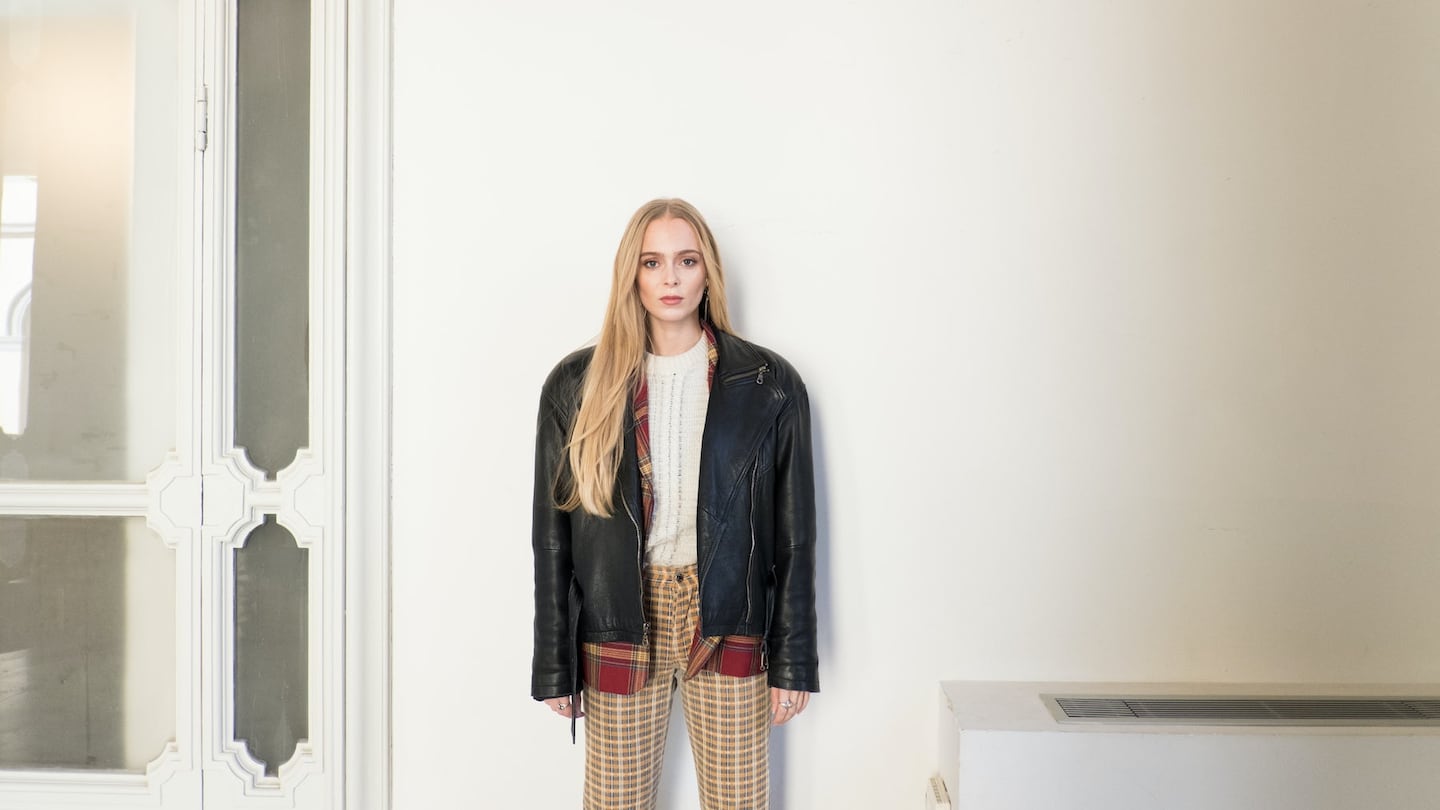
FLORENCE, Italy — Educating aspiring fashion professionals since 1986, Polimoda has developed a unique curriculum which balances the need for rigorous design education with an understanding of the forces transforming the fashion industry. Students who attend the school are taught an appreciation of the classical principles of design that first made renaissance Florence famous, as well as educational experiences focused on the practical application of innovative technologies and strategies.
Spanning three campuses, situated on either side of the picturesque River Arno, the school’s student body ranges from 18-year-old undergraduates to established professionals seeking to develop themselves. Internationally diverse and studying a broad range of industry disciplines, the school encourages its students to learn from each other’s practices and they regularly collaborate together and with the industry itself.
To discover what it's really like to study at Polimoda, and to hear how the next generation of talent is being prepared for the industry in their own words, BoF interviews three students and alumni at three different stages of their education and career.
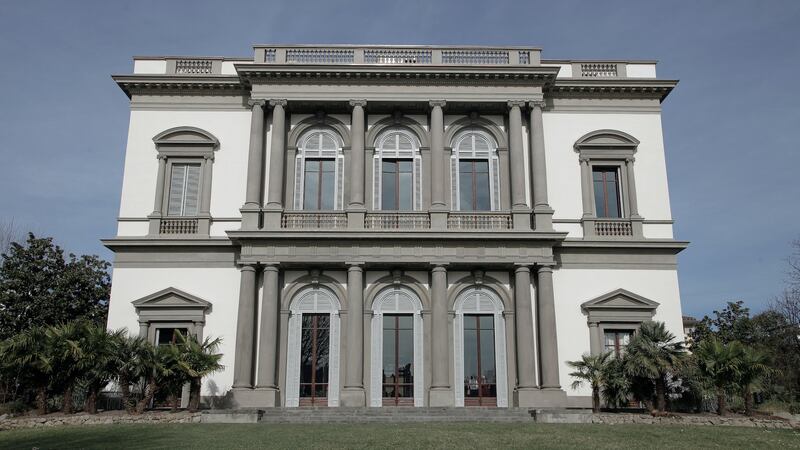
Polimoda's Villa Favard in Florence, Italy | Source: Courtesy
Lorenzo Rotondo — Third Year Undergraduate in Fashion Art Direction — Attended 2016 to 2020
"Polimoda has helped me find my path."
Why did you choose to study at Polimoda?
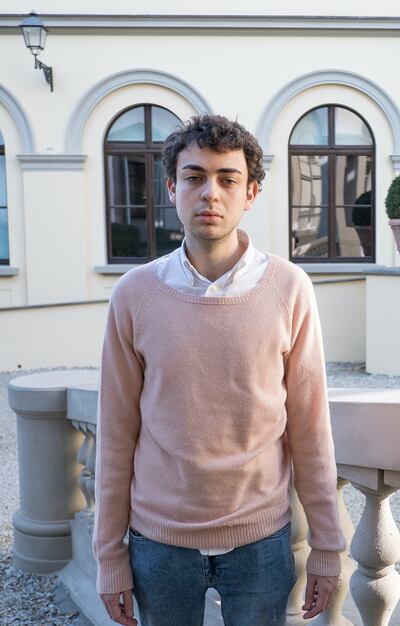
Lorenzo Rotondo, third year undergraduate in Fashion Art Direction | Source: Courtesy
When I started scouting out fashion schools, I was undecided if I wanted to go abroad or stay in Italy. But I found in Polimoda the right balance between the Italian approach and the Anglo-Saxon approach to education. You have the depth of Italian schools but at the same time, you have the practical, more professional approach that you find in Anglo-Saxon schools. For this reason, I knew it was the right school for me.
I was then happy to discover I had found a place where I can really be myself, where I can express my way of thinking. I’ve made friends here who are like a second family. In Polimoda, I found my preferred teaching approach, but also a warm school environment.
What is the student body like at Polimoda?
There’s a lot of diversity and when you enter the school, you can breathe different cultures and languages. You find students speaking in Italian, Finnish, Spanish, English — it is an international campus where you breathe diversity, which makes it an open-minded environment.
I also spend a lot of time at school because I do my group work there. All of our work is in groups, so we have the chance to collaborate with students from other courses. As a part of Art Direction, we work with students from the business course and fashion design course, for example. This means that on projects, we can combine three different types of expertise to present to a brand, thereby showcasing not only ideas for the art direction but also the design of a dress and a business strategy.
How would you compare Polimoda’s teaching methods to your previous academic experience?
At Polimoda, it’s really an open environment where you learn in many different ways. In lessons, you can have a real exchange with your teacher. They ask for your opinion and you can have a debate. My previous experience of learning was at high school, which gave me a solid base in terms of knowledge, but you lacked the relief of putting your heart into what you do.
What is the most valuable aspect of Polimoda in preparing you for the industry?
For me, the teachers have been the most valuable aspect to my time at Polimoda. I have had some amazing teachers who have taught me far more than the typical curriculum. They are also supportive and sustain that from the beginning. These teachers are really shaping my work, and for me, that is the most solid base to approach the industry.
These teachers are shaping my work, and for me, that is the most solid base to approach the industry.
Polimoda has helped me find my path. I have had the fortune to meet people here who helped me to understand myself. Thanks to these people, I understand now what I want to do in the future and who I am.
What advice would you give those thinking about applying to Polimoda?
If you are ready to think out of the box, to put all your passion and heart in what you do, to constantly push yourself, to be open to new ideas, to discover things you didn’t know about yourself, and especially if you are ready to learn to compromise in a team to get the best results, then you are ready for Polimoda.
Those who should apply are those who are ready to commit, to believe in what they do, to push the boundaries and to be honest, curious, and ready for something new — to discover and experiment.
Elisa van Barneveld — Fashion Retail Management Scholar — Attended 2018 to 2019
"It’s a safe environment in which Polimoda encourages you to push and challenge yourself."
Why did you choose to take a retail management course at Polimoda?
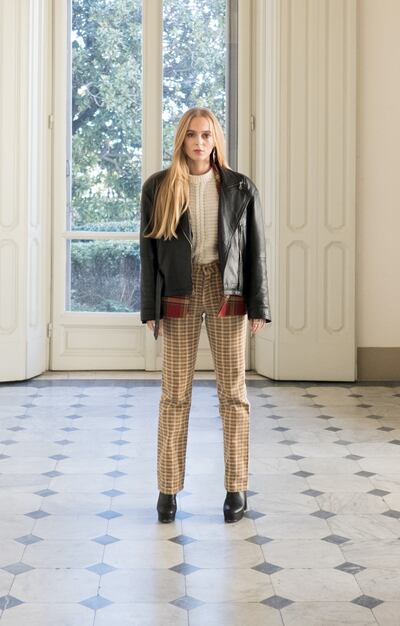
Elisa van Barneveld, Fashion Retail Management scholar | Source: Courtesy
The programme I chose was in collaboration with Gucci, which seemed like a unique and meaningful experience that I couldn't find anywhere else. When I saw the partnership announced, I knew I wanted to be a part of it. The programme itself also seemed to touch points in the industry that I hadn't learnt about yet. It was an opportunity that I didn't want to miss.
Polimoda is also such a different type of school. It’s intimate and you have a better connection with your professors because the classes are so much smaller. There are more opportunities to connect and to learn, to ask questions and to get more specific feedback — to evolve. They get to know you on a different level.
What is the divide between theory and practical application on your course?
In most classes, we learn theories which we then put into practice through case studies relating to art, fashion, music, but also culture and society. So, in a way, the theory and practical application is fluid.
We also go on field trips to stores, to Milan Fashion Week and the Gucci Art Lab. Then there’s the opportunity to attend guest lectures, which are open to all students and teachers. It’s about showcasing and highlighting talents from within the industry. It is helpful to listen to these people but we then also have the opportunity to interact with them and ask them questions afterwards.
Can you describe some of Polimoda’s industry connections accessible for students?
Polimoda has a great network. The teachers have either worked in the industry or are still working in the industry, as fashion professionals or freelancers. Even though they are teachers, they are still a part of your network. There are also so many [former] students from Polimoda who are working in so many different capacities, which means there’s a huge network of alumni and experienced students which you can rely on.
How would you describe the campus culture at Polimoda?
Polimoda is an inspiring place, set on a spacious campus, yet it has an intimate feel to it. It’s also filled with people from all over the world. While all the students’ different personalities and backgrounds make for a diverse student body, the professors also come from all sorts of different places and work backgrounds. It means that everyone feels free to express themselves in an environment that revolves around opportunities.
How are your studies helping you prepare for an industry that is undergoing continuous disruption?
[Getting the scholarship] gave me a lot of confidence and proved to me that if you work hard and you have the right attitude, determination and passion, you will be rewarded. It confirmed for me that if you follow your intuition and your gut, then you can make it happen.
Everyone feels free to express themselves in an environment that revolves around opportunities.
Polimoda’s environment is also very supportive. Teachers provide a lot of constructive feedback, which allowed me to grow in a very short period of time as the Masters is only 9 months long. It’s a safe environment in which Polimoda encourages you to push and challenge yourself. My studies are really a tool to guide me and to explore my creativity, to challenge myself personally and professionally.
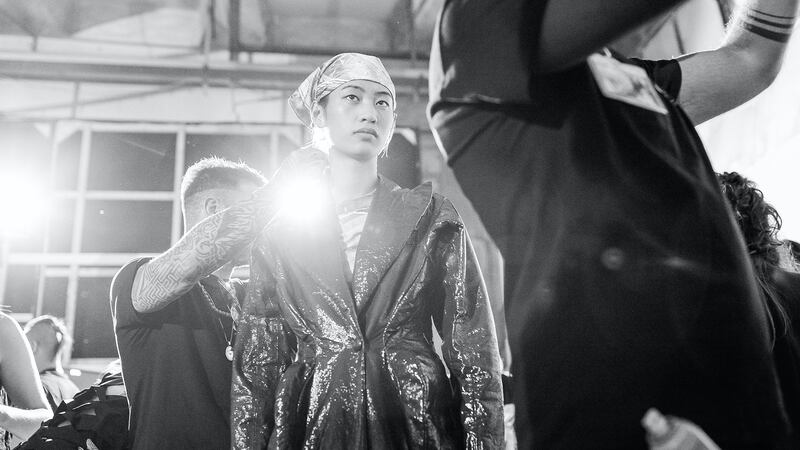
Backstage at Polimoda fashion show by Federica Fioravanti | Source: Courtesy
Massimiliano Giornetti — former undergraduate student in Fashion Design and internationally recognised creative director — Attended 1996 to 1999
"Given how closely Florence is connected to the textile industry, Polimoda gives students the chance to liaise with the industry on a daily basis."
What were the most important lessons you learnt at fashion school?
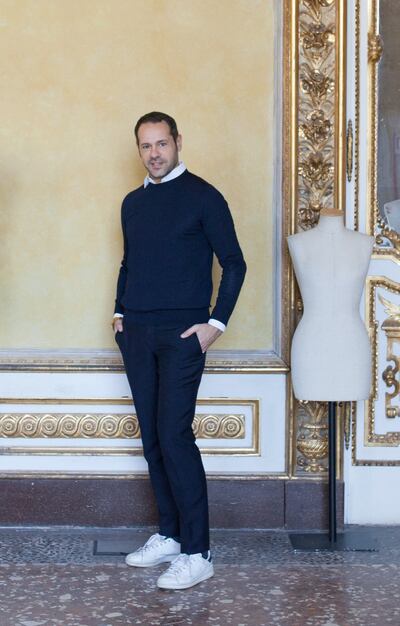
Massimiliano Giornetti, former undergraduate in Fashion Design | Source: Courtesy
At the time I was studying, Polimoda was in collaboration with London College of Fashion and FIT in New York. It was a really unique, very informational course thanks to the access it provided its students. I think it's fundamental to be able to correctly design a profile for consumers. At Polimoda, I also learnt that true modernity is to create a dress, or accessories, that don't go out of style. It is the ability to create something that is timely and unique rather than chasing trends. Everything was truncated into the ability to transform anything into the future.
Polimoda also helped develop my ability to be inspired by everything. Fashion is the most contemporary form of art because it lives within people and it lives in the street. It is what [makes] this industry so powerful and so inspirational for everybody. Polimoda gives you [that] vision — you need to keep your eyes open, to be inspired by the street, the art, the individualities that can become the culture of fashion tomorrow.
Why is Polimoda’s location so significant to its students?
The city of Florence was so important to my development — [it is] extremely significant for its architecture and artistry at every stage. My most important lecture at Polimoda [was] the ability to circulate the heritage, the culture, the architecture, the art, everything that is present in Florence, into something that informs your individuality.
Given how closely Florence is connected to the textile industry, Polimoda gives students the chance to liaise with the industry on a daily basis. Florence is favoured for its craftsmanship — the ability to work with leather, wool, gold, silver. The city is a collective of artisanal tradition, and it’s the ability to relate to that craftsmanship, to the Made in Italy industry, that makes Polimoda and the Florentine environment so unique.
How did that impact you in your career?
Florence is a world that has always been a collective of artisanal tradition. In my work at Ferragamo, there is that link between creativity from one side and craftsmanship from the other side. I believe that Made in Italy is a value that’s made of human resources. It is the difference in the Italian strategy, with this creativity coming from the North of Europe, that has the ability to be varied and connected with the artisanal tradition.
What advice would you give to students starting fashion school?
Fashion houses are always asking for results, [but] there is a lot of repetition today. Few fashion houses carry the, “Je ne sais quoi,” that makes them instantly recognisable to the final consumer — we’re in a time where it’s hard for consumers to distinguish one brand from another. I feel it is a difficult time in the industry today. Fashion needs to go back to its roots, to feel the inclusivity with the consumer, which, in my opinion, is being killed by mass distribution. I believe that the true goal is championing the idea [of turning] the focus from manufacturing back to the notion of craftsmanship.
The city of Florence was so important to my development — [it is] significant for its architecture and artistry at every stage.
Individuality needs to become the passport for productive people, especially for those entering the industry right now. I believe that [fashion is] essentially a metamorphic industry. The market is constantly changing and it's in the preparation for the change. For people entering the fashion industry, [I recommend you] explore and research, collect and manipulate ideas, fabric, installation, with big thinking and always with your eyes open. My most important advice for anybody entering this industry is the ability to express your creativity and your style with your unique, personal touch.
From analysis of the global fashion and beauty industries to career and personal advice, BoF’s founder and CEO, Imran Amed, will be answering your questions on Sunday, February 18, 2024 during London Fashion Week.
The State of Fashion 2024 breaks down the 10 themes that will define the industry in the year ahead.
Imran Amed reviews the most important fashion stories of the year and shares his predictions on what this means for the industry in 2024.
After three days of inspiring talks, guests closed out BoF’s gathering for big thinkers with a black tie gala followed by an intimate performance from Rita Ora — guest starring Billy Porter.